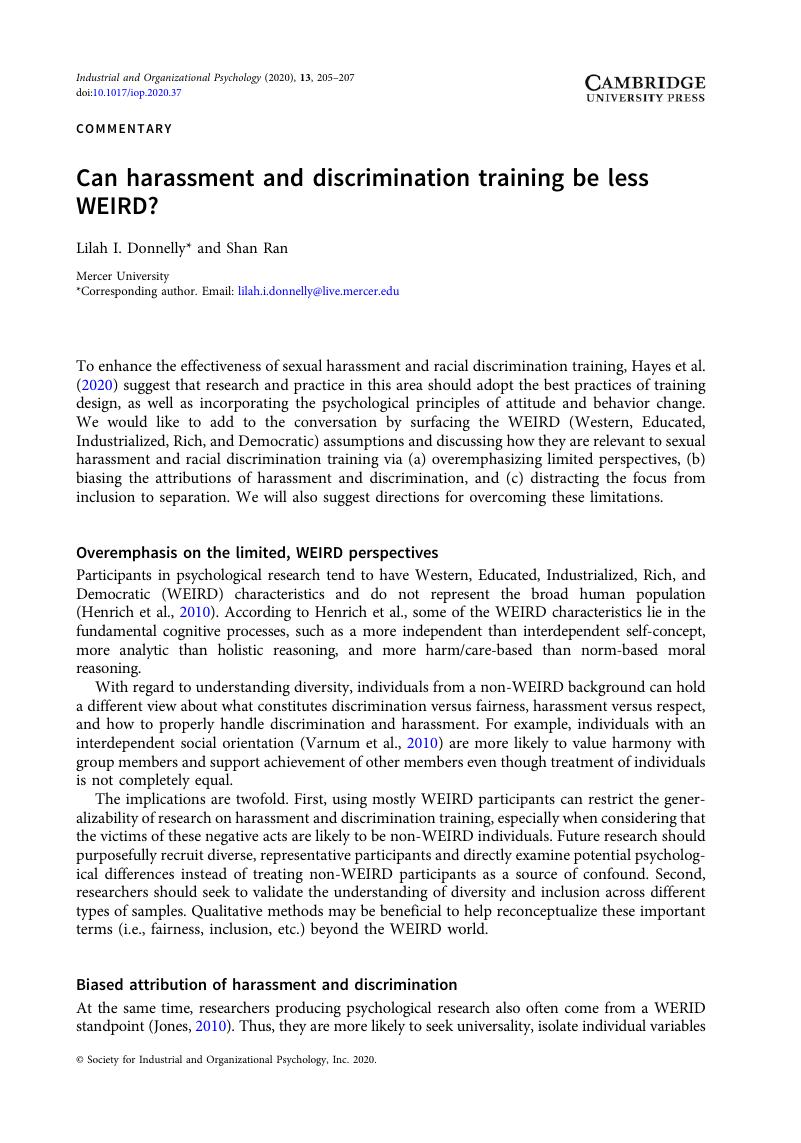No CrossRef data available.
Article contents
Can harassment and discrimination training be less WEIRD?
Published online by Cambridge University Press: 28 July 2020
Abstract
An abstract is not available for this content so a preview has been provided. Please use the Get access link above for information on how to access this content.

- Type
- Commentaries
- Information
- Copyright
- © Society for Industrial and Organizational Psychology, Inc. 2020
References
Hayes, T. L., Kaylor, L. E., & Oltman, K. A. (2020). Coffee and controversy: How applied psychology can revitalize sexual harassment and racial discrimination training. Industrial and Organizational Psychology: Science and Practice, 13(2), XXX–XXX.CrossRefGoogle Scholar
Henrich, J., Heine, S. J., & Norenzayan, A. (2010). The weirdest people in the world? Behavioral and Brain Sciences, 33,
61–83.CrossRefGoogle Scholar
Jones, D. (2010). A WEIRD view of human nature skews psychologists’ studies. Science, 328(5986), 1627.CrossRefGoogle ScholarPubMed
Saunders, S., & Easteal, P. (2013). The nature, pervasiveness and manifestations of sexual harassment in rural Australia: Does “masculinity” of workplace make a difference? Women’s Studies International Forum, 40, 121–131.Google Scholar
Starbucks. (2018, April 17). (News release.) Starbucks to close all stores nationwide for racial-bias education on May 29. Retrieved from https://news.starbucks.com/press-releases/starbucks-to-close-stores-nationwide-for-racial-bias-educationmay-29Google Scholar
Varnum, M. E., Grossmann, I., Kitayama, S., & Nisbett, R. E. (2010). The origin of cultural differences in cognition: The social orientation hypothesis. Current Directions in Psychological Science, 19, 9–13.CrossRefGoogle ScholarPubMed




